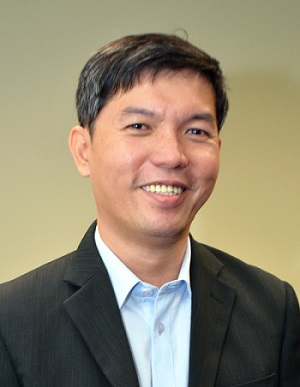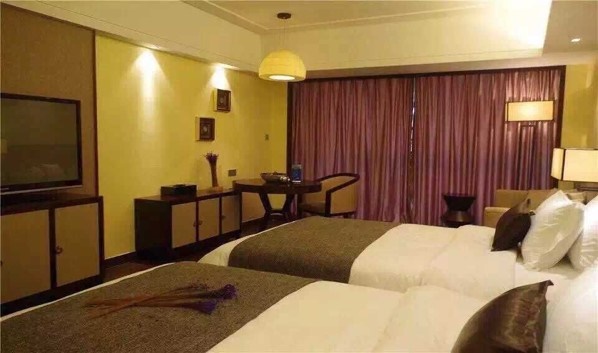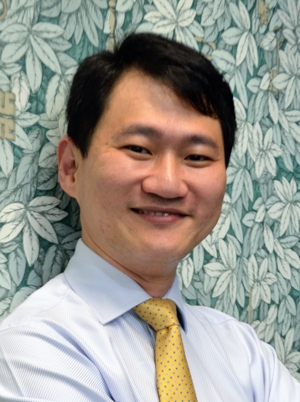|
CEDAR STRATEGIC HOLDINGS has posted 2QFY2016 revenue of RMB 42.7 million, contributed by the Group’s maiden asset, Daya Bay, post restructuring. |
Below are some questions raised at Cedar Strategic's 2QFY2016 results briefing and the answers provided by CEO Tan Thiam Hee and CFO Joseph Lim.
|
(NextInsight file photo) |
Q: What proportion of your apartment sales are settled in cash?
Thiam Hee: Our apartment units are considered investment properties and not residential properties. The government’s strict control over the property market has deterred banks from extending financing for investment properties that are not owner-occupied.
Most buyers have paid at least 50% of the sales value in cash. We are arranging for the company to extend instalment payments for the outstanding balances over a one-year period. In such cases, we hand over the units but the legal title deeds are not transferred until the purchase is fully paid-up.
Q: What is the amount of non-performing loans from buyers who pay the deposit and walk away?
Thiam Hee: Most buyers purchased the apartment units when the price was lower than the current market price. There is no reason for them to forfeit the asset when they can sell it on the market for a profit. We have very few buyers who walk away. We financially report forfeited deposits as income.
Q: What is the selling price of each apartment unit for sale?
Thiam Hee: These are affordable holiday beach resorts. The units are less than 50 square meters each, which works out to less than a million yuan each.
Q: What are your expansion plans?
Thiam Hee: We are looking at brownfield property-related ventures in Chengdu, Myanmar and Jakarta. We prefer brownfield projects as greenfield projects require a much larger capital investment and we may not have the necessary resources to complete such large projects.
| Stock price | 0.3 c |
| 52-week range | 0.1c to 0.4c |
| PE (ttm) | 18.7x |
| Market cap | S$31 million |
| Dividend yield | - |
| Price/Sales (ttm) | 2.1x |
| Source: Bloomberg |
The Chengdu asset that we are looking at is a mature project. In China, transfer of asset ownership to a wholly foreign-owned enterprise (WFOE) is a tedious process. So, we are waiting for the vendor to convert the asset holding company into a WFOE before proceeding with due diligence and the signing of the sale and purchase agreement.
In Myanmar, we are looking at properties under development as well as brand new properties.
In Jakarta, we are looking at residential, commercial and mixed developments.
In all our projects, we try to maintain a business model with two segments: development for sale and investment for rental. The rental segment will provide recurring income to mitigate the cyclical nature of real estate development. Having said that, whether we invest in a project will ultimately depend on the merits of the deal.
 CFO Joseph Lim.
CFO Joseph Lim.
NextInsight file photo Q: There are many property developers going into Myanmar. What is your competitive edge?
Thiam Hee: Most of the projects that we evaluate in Myanmar are on land granted by the government. Such projects require a 25% participation by local investors. Our non-executive director, Mr Teo Cheng Kwee, has a landmark real estate project in Myanmar known as Golden City. We have support and advice from Mr Teo when we look at projects in Myanmar.
Our Chief Development Officer, Yang Cha, is based in Chengdu. So Chengdu is familiar territory to us.
We are looking into appointing a senior staff in Jakarta.
It is not difficult to get a strategic local partner because of the diversified background of our board of directors. Our non-executive chairman, Christopher Chong, is a director in Yingli and he has a strong network among real estate players in the region. Mr Teo is very experienced in property development. I myself has also been involved in construction and property development companies for a good number of years. All of us bring different industry contacts to the table.
Cedar Strategic may be a relatively young company but its management is very experienced in this industry. The next step is to appoint operational personnel to drive our growth.
Q: What is the imputed interest expense of RMB 1.89 million recurring in 1Q2016 and 2Q2016?
Joseph: Financial accounting standards require us to reflect the finance costs of RMB 1.9 million in 2QFY2016 arising from the deferred payment for the acquisition consideration of Daya Bay and its related interest-free loans that we have to repay by the end of 2017.
There is no cash flow impact from this imputed interest. 2QFY2016 net profit attributable to shareholders would have been more than RMB 2 million if not for this imputed interest.








